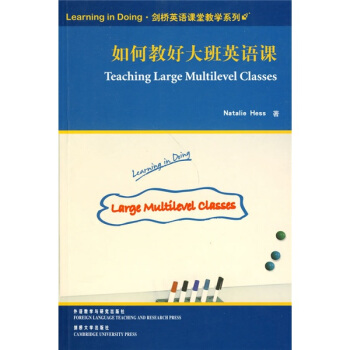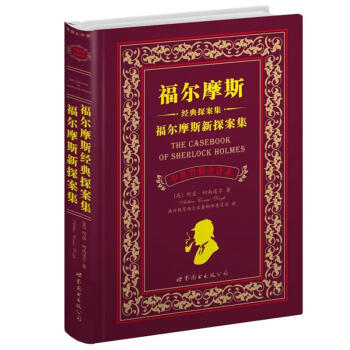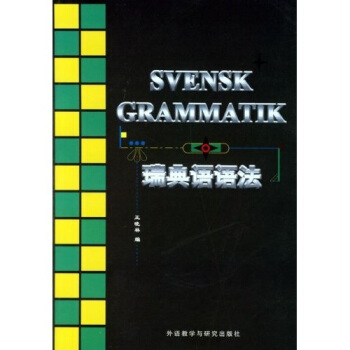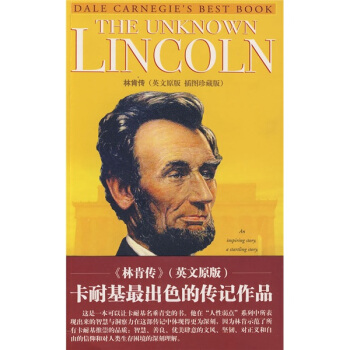

具体描述
内容简介
针对大班英语课教学,《如何教好大班英语课》介绍了150余个生动、有趣的课堂活动。每个活动都清晰标明了活动目的、适合水平及活动时间。除逐条详列操作步骤外,还提供活动涉及的范例、表格、图片样本供参考。书中活动均来自作者亲身教学实践,操作简便、实用性强,颇具启发性。《如何教好大班英语课》文字浅显易懂,编排一目了然,特别适合从事一线教学工作的中学、大学及培训学校英语教师使用,经验丰富的老教师也可从中获益。内页插图
目录
Thanks and acknowledgementsIntroduction
How to make best use of this book
What is a large multilevel class?
Benefits and challenges of the large multilevel class
Eleven principles of coping in large multilevel classes
1 Getting to know our students
Learning their names
1.1 Name toss
1.2 Picture it
1.3 Names as crosswords
1.4 The story of my name
1.5 Names and adjectives
1.6 I am and I love
1.7 Desk placards
1.8 Use real pictures Learning about our students lives
1.9 The letter
1.10 Guess who?
1.11 Three things about me
1.12 Mutual interviews
1.13 The missing person announcement
1.14 Managing my time
1.15 Formal introductions
2 Motivation and activation
2.1 Burst the balloon- expressing opinions
2.2 The preference line - explaining yourself
2.3 The quick-write
2.4 Like, dislike, or neutral
2.5 Whats your number?
2.6 Again and again and again
2.7 Friendship
2.8 More about friendship
2.9 People I admire
2.10 Special places
2.11 Dreams I have
2.12 How I feel now
2.13 Slip exchange
2.14 Flip-flop books
2.15 Frame it
2.16 Colored round robin
2.17 Circle talk
2.18 Teaming up
2.19 Needle in a haystack
2.20 Optimistic snapshots
2.21 Words on cards
2.22 A solution for the problem
2.23 Student-centered dictation
2.24 The seminar
3 Reviewing while maintaining interest and momentum
3.1 Answers into questions
3.2 Review posters
3.3 Student-made quickie quizzes
3.4 Group reviews
3.5 Group summaries
3.6 Vocabulary wall
3.7 Class goals
3.8 The KWL procedure
3.9 The Venn diagram
3.10 Judging people
3.11 Running dictation
3.12 My sentence
3.13 Where is my other half?
3.14 Person, place or thing
4 Dealing with written work
4.1 Keep it going
4.2 Peer reviews
4.3 Writing conferences
4.4 Write before you talk
4.5 Buddy journals
4.6 Using email
4.7 Wall newspaper
4.8 Using chat rooms
4.9 Using websites
4.10 Writing about landscape pictures
4.11 Writing about pictures of people 1
4.12 Writing about pictures of people 2
4.13 Service writing
4.14 A bio-poem class book
4.15 The cumulative folder
4.16 Sentences into story
4.17 Personalized guide books
4.18 Change the audience
4.19 Clustering
4.20 The writing cycle
4.21 A resource for self-correction
4.22 Letters of advice
4.23 In the middle of the story
4.24 The spelling list
4.25 From words to story
4.26 Plot construction
5 Working well in groups
5.1 Working together
5.2 The quiet signal
5.3 Give me your sticks
5.4 The text jigsaw
5.5 The picture jigsaw
5.6 Making mine long
5.7 Sentences into story
5.8 The aquarium
5.9 All for one
5.10 Group dictations
5.11 The community group project
5.12 The walk-about
5.13 Picture puzzle
5.14 Back and forth movie preview/in view
5.15 Three in one
5.16 The missing word
5.17 Alphabet shopping
5.18 Pronoun search
5.19 Words to make a cake
5.20 Things we share
5.21 Our group cheer
5.22 Dictated stories
5.23 Three good questions
6 Individualizing and personalizing student work Individualizing
6.1 Multilevel dictation
6.2 The book cart
6.3 Silent task work with a self-access box
6.4 Working with words
6.5 Sentence completion
6.6 Question the reading Personalizing
6.7 Vocabulary cards
6.8 Three-minute talks
6.9 The story of my life posters
6.10 My object
6.11 The vocabulary house
6.12 The mailbox
6.13 My machine
6.14 An important decision
6.15 An important sentence
6.16 Color sadness blue
6.17 Water words
6.18 I dont like people who
6.19 Careers in my family
6.20 What we want from our work
6.21 Our own good folder
6.22 Words on my desk
6.23 Drawing interpretation
7 Making students responsible for their own learning
7.1 What kind of a learner am I?
7.2 Setting goals for myself
7.3 How a teacher helped me
7.4 How can the teacher help me?
7.5 How I can help myself
7.6 Personal conferences
7.7 What kind of a listener am I?
7.8 This course will be a success for me if ...
7.9 What kind of a reader am I?
……
8 Establishing routines and procedures
Bibliograpby
Index
精彩书摘
It is well to note that our work in large multilevel classes will never beeasy. And there will always be days when we feel frustrated. This is parfor the course. Nevertheless, there will always be many more good thanbad days. We will always know that our work is important, thatthrough our work we have contributed to the welfare of people andof society, and if today was bad, chances are that tomorrow will bebetter. If the class we have right now is impossible, next semestersgroup may be ever so much better. If the material we are working withjust doesnt click, we can always choose something more appropriatewhen we teach the same topic next time.If you have read Gone with the Wind by Margaret Mitchell, youknow that its heroine, Scarlett OHara, had a special mantra when thingsgot too tense: I will think about it tomorrow, she said. This philosophymay prove helpful in dealing with the frustrations that accompanyteaching large multilevel classes. No matter how good we get to be, nomatter how much personal fulfillment we may find in our work, there isno escaping the fact that the job will always present us with challenges.In fictional or filmed teacher stories, the hero teacher usually strugglesmightily during his/her first year of teaching and then through somemiraculous epiphany understands why things have not worked out well.Or, our hero teacher changes his/her tactics/attitude/technique/strategyand presto he/she becomes the most wonderful and beloved teacher inthe world. No wonder real teachers get fed up with the stories! In reallife, the struggle, in all its various forms, continues throughout onescareer. Of course, we all develop and learn many things, but the job iseternally challenging and that perhaps is one reason why so many of uslove it!
前言/序言
外研社从剑桥大学出版社出版的“Cambidge Handbooks for Language Teachers”中选出10本,结成“Learning in Doing?剑桥英语课堂教学系列”,在中国大陆出版发行。应外研社要我为这套丛书写一个总序的要求,我通读了全部10本书,同时看了原系列其他书的书名。我发现,在所有这些书都涉及外语教学中的重要问题的同时,编者选出目前这10本来先期出版发行,是有道理的。
首先,从这10本书的书名就可看出,它们都是关于当前外语教学中的一些最关紧要的问题。读这套书的教师朋友们会发现,它们是如此切合我们国家当前外语教学(尤其是基础阶段外语教学)所面临的突出问题,用一句俗语说,它们是如此符合我国的“国情”:大班教学、以学生为中心突出个性化教学、课堂设计、口语教学、词汇教学、如何利用多媒体教学手段等等,方方面面,不一而足。
用户评价
我最近一直在探索如何让我的课堂活动更有趣、更贴近学生的真实需求,尤其是那些大班级的管理和互动,确实让人头疼。这本书给我带来了一些非常实用的启发,不仅仅是理论上的指导,更多的是一套套可以直接“搬回家”使用的具体策略。比如,书中对如何构建有效的课堂流程提出了很多创新的看法,尤其是如何在大班级中确保每个学生都有参与感,而不是让少数“活跃分子”主导全场。我尝试了其中一个关于小组合作学习的微调方法,效果立竿见影,连平时比较内向的学生也开始积极表达了。这种“即插即用”的实用性,是我选择这本书的重要原因之一,它实实在在地解决了我在日常教学中遇到的痛点,让人感觉像是请到了一位经验丰富的资深教师在旁边手把手指导。
评分这本书的价值不仅体现在它对具体教学技巧的阐述上,更在于它所构建的一种积极、以学习者为中心的教学理念框架。它引导我们思考,在信息爆炸的今天,我们到底应该培养学生哪些核心能力,而不仅仅是教会他们多少单词和语法点。书中对于如何设计能够激发学生内在学习动机的活动部分,给予了大量的篇幅和深入的探讨。它让我重新审视了自己以往的一些教学习惯,并鼓励我勇敢地走出舒适区,去尝试那些可能在初期会遇到阻力,但长期来看对学生发展更有益的教学改革。这种思想上的引领作用,是任何纯粹的技巧手册都无法比拟的,它真正做到了“授人以渔”,提升的是我作为教育者的整体专业素养。
评分作为一名老教师,我常常觉得很多新出的教学指南都有些“纸上谈兵”,它们往往忽略了真实课堂环境的复杂性和突发性。然而,这本书最让我称赞的一点,就是它对课堂“意外情况”和“差异化教学”的处理方式。书中详尽地分析了在大班级中,学生学习进度不一、注意力分散等常见难题,并提供了非常具有操作性的应急预案和长期策略。比如,针对不同学习水平的学生如何进行差异化提问和反馈,这些细节的描述非常到位,体现了作者对一线教学实践有着极其丰富的经验和深刻的同理心。读完后,我感觉自己对于掌控课堂节奏和应对各种突发状况的信心又增强了不少,这比任何宏大的理论框架都来得实在。
评分这本书的封面设计得非常醒目,色彩搭配既专业又不失活力,一下子就抓住了我的眼球。我一直觉得,好的教材不仅仅是内容的堆砌,更重要的是如何通过设计来引导学习者和授课者。这本书的版式布局清晰明了,每一章节的结构都设计得很有逻辑性,让人在翻阅时感到非常流畅。特别是那些图文并茂的部分,比如一些教学场景的插图,画得非常写实,能让人立刻联想到真实的课堂情境。这种细致入微的设计,无疑大大提升了阅读体验,也让我对书中内容的期待值更高了。它不仅仅是一本工具书,更像是一份精心准备的课堂蓝图,让人感觉作者在每一个细节上都倾注了大量心血。从这个角度来看,这本书在视觉传达和用户友好度方面做得相当出色,这对于一本专业的教学用书来说至关重要。
评分这本书的语言风格非常平实,但其内涵却极其深厚。它没有使用太多晦涩难懂的教育学术语,而是用一种非常亲切、易于理解的方式,将复杂的教学理念娓娓道来。这使得即便是初次接触这些教学法的新手,也能迅速抓住重点,并将其内化为自己的教学思维。我尤其欣赏作者在讨论不同教学阶段时所展现出的那种对教育本质的深刻洞察力。它不仅仅停留在“教什么”的层面,更深入探讨了“为什么这么教”以及“如何让学生真正学到”的底层逻辑。这种由表及里的深入分析,让我在阅读过程中时常产生“原来如此”的恍然大悟感,极大地拓宽了我对英语教学本质的理解深度。
评分,阅读了一下,写得很好,针对大班英语课教学,如何教好大班英语课介绍了150余个生动、有趣的课堂活动。每个活动都清晰标明了活动目的、适合水平及活动时间。除逐条详列操作步骤外,还提供活动涉及的范例、表格、图片样本供参考。书中活动均来自作者亲身教学实践,操作简便、实用性强,颇具启发性。如何教好大班英语课文字浅显易懂,编排一目了然,特别适合从事一线教学工作的中学、大学及培训学校英语教师使用,经验丰富的老教师也可从中获益。,,...,.,,,.,.,.,,,:,..,,.,.,.!,,,.,,!。
评分书让你的生活过得更充实,学习到不同的东西。感受世界的不同。 不需要有生存的压力,必竞都是有父母的负担。 虽然现在读书的压力很大,但请务必相信你是幸福的。 在我们国家还有很多孩子连最基本的教育都没办法享受的。
评分书还不错,老婆买来准备教学生用的
评分好好!對教學有幫助,有幫助.超級喜歡
评分对教学有帮助,图文并茂,比较生动,没想到是全英文的,读起来比较费劲,价格也不是很便宜。
评分我的教师朋友说书很不错,之前在其他书店没找到,在京东找到了,给好评。
评分。。。。。。。。。。。。。。。。。。。
评分好好!對教學有幫助,有幫助.超級喜歡
评分非常不错,很喜欢,由于很多,快递师傅还帮我搬上了楼
相关图书
本站所有内容均为互联网搜索引擎提供的公开搜索信息,本站不存储任何数据与内容,任何内容与数据均与本站无关,如有需要请联系相关搜索引擎包括但不限于百度,google,bing,sogou 等
© 2026 book.tinynews.org All Rights Reserved. 静思书屋 版权所有






![开明第一英文读本 [Kaiming First English Book] pdf epub mobi 电子书 下载](https://pic.tinynews.org/11395020/rBEhVFLciXoIAAAAAAyfJwYRT5oAAIEwAB5nu8ADJ8_260.jpg)











![E2儿童美语:中级(全套 修订本 附DVD光盘) [7-10岁] pdf epub mobi 电子书 下载](https://pic.tinynews.org/10253900/ba78f638-bfa2-4c34-baee-776bef5095f9.jpg)
![双语译林:忏悔录(附法文原版书1本) [Les Confessions] pdf epub mobi 电子书 下载](https://pic.tinynews.org/10862443/rBEHaFC1t-4IAAAAAAEZ9ESF56EAADDewCCKiUAARoM099.jpg)
